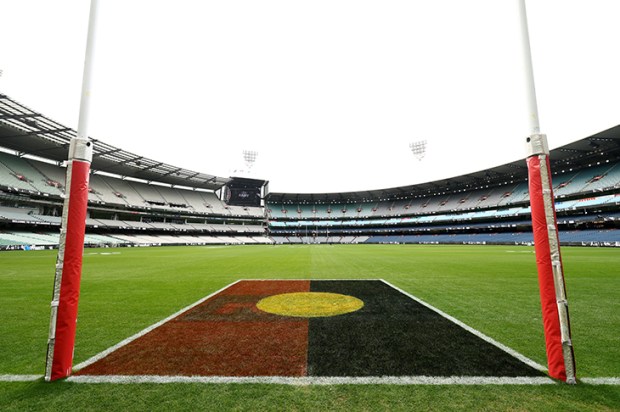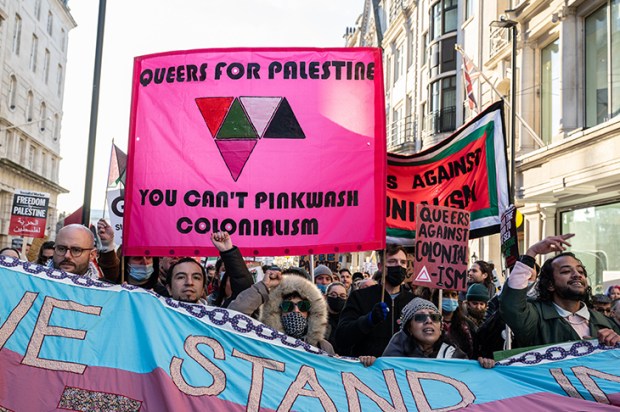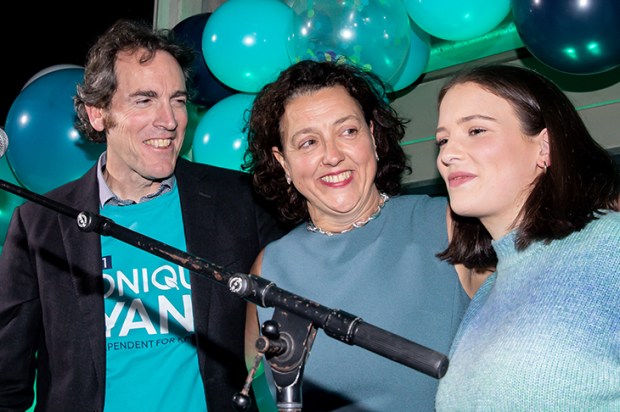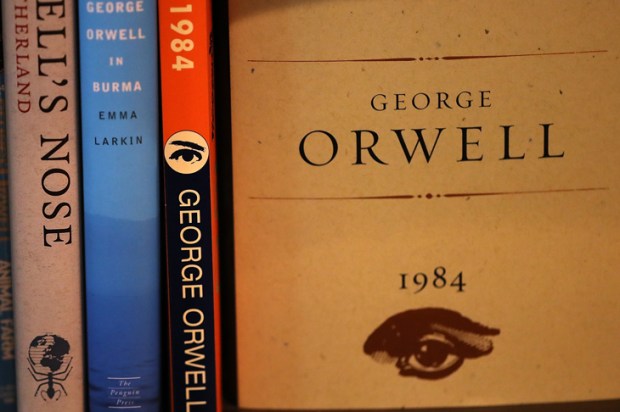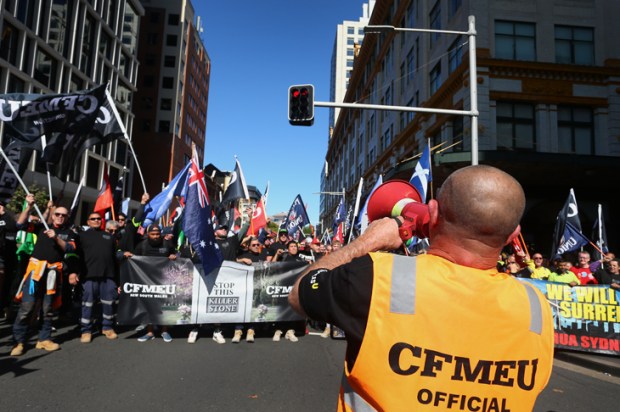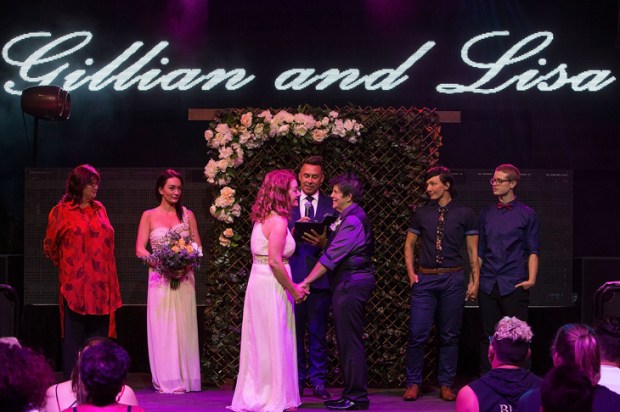If you’ve ever suspected that left-wing crusaders are whingers with a chip on their shoulder and a negative outlook on life, a sleek little volume from the Australia Institute will confirm you in your suspicion.
It’s called ‘What’s the Big Idea?’ but it turns out to be a babel of small ideas, a distillation of contemporary leftist obsessions, little barrows pushed by various monomaniacs in the fertile field of fashionable grievances – or, as the director of the Australia Institute, Richard Denniss, more rosily describes his contributors, ‘incredible (sic) people who have been so generous as to lend their time and their names’ to the institute’s unceasing efforts to tilt public opinion leftwards.
These ‘incredible’ people – who I assure you are all too credible, you can’t avoid them anywhere – argue by assertion, complacently convinced of their superior wisdom. Thomas Mayo, the Robespierre of Aboriginal ‘constitutional recognition’, knows as a fact that 60 per cent of the nation’s voters are wrong in rejecting his ‘Voice’. Mind, they’re not to be blamed too much: they were led astray by a ‘powerful few – the Bad Actors’ (tactfully unnamed) ‘who chose to use the referendum in their ideological wars against peace and justice’. ‘We must use truth to protect our fellow Australians from the lies they will continue to hear,’ he thunders.
If the failure of the Voice was a disappointment to Aboriginal people, of whom Thomas counts himself one, despite having Polish and Jewish forebears, it was an even crueller one to him and his type, whose careers, had it gone through, would have blossomed, making them persons of consequence more powerful, because less accountable, than parliament.
‘Indigenous’ campaigner Pat Anderson muses on the effects the referendum failure will have on ‘our mob’ (her father was Swedish). ‘We are now at a fork in the road,’ she declares. Aboriginal people ‘can either continue down the path of reconciliation, to make further attempts to repair the relationship between our ancient cultures’ and what she primly calls ‘those who have come here in the last few hundred years’, or give up on ‘reconciliation’ altogether. Parliamentary performances by Senator Lidia Thorpe (English and Irish descent) suggest some already have.
Louise Adler, who seems to have been CEO of more taxpayer-funded entities than most people have had hot dinners and is now presiding over the leftist family reunion that is the Adelaide Writers’ Festival, is exercised about corporate sponsorship of ‘the arts’. She wants the hefty cheques from the big end of town but doesn’t want the donors to have a say in what they are spent on. Too many donors, apparently, try to muscle in on the action, and even withhold their largesse if they don’t like something the artists in receipt of their munificence do. ‘Many artists feel a moral obligation to use their voices and their art to speak to the cruelties and injustices of the times,’ she writes. When ‘three actors in Sydney took a curtain call wearing a keffiyeh’ – presumably to speak to the injustices of the wicked Israeli ‘war’ on harmless little Gaza (a place they would probably have been unable to find in the atlas before 7 October 2023) – there was much disapproval from patrons who didn’t understand that their role was to cough up and shut up. Similarly, when her Adelaide gathering ‘showcased Palestinian contemporary writing’ – that must have been a literary treat – ‘antagonists’ provoked a ‘media flurry’.
Naturally, feminism is not neglected by the editors. Barrister Jennifer Robinson wants more laws to stop men suing women who accuse them of rape. In the course of this she somehow contrives to present Brittany Higgins as a national heroine.
It would be no gathering of leftist bores without gushing praise for the ABC – ‘a precious and vital part’ of our national life, fighting ‘for our democracy’. And of course climate gloom. The Australia Institute (it’s a bit of a nerve a partisan body making itself sound official) has duly come up with an outright climate hysteric to contribute a chapter on this tedious topic. Dr Joëlle Gergis, an ‘award-winning climate scientist’, wants us to know ‘three things’: (1) that the climate situation is ‘worse than you think’, (2) that it is going to get worse, because (3) ‘our political leaders still aren’t doing enough’ about it (that must be hurtful to poor Mr Bowen). She demands ever more ruthless suppression of fossil fuels, ‘an industry that we know is cooking the planet’. Even the hallowed Paris Agreement might not be enough to avoid disaster. We must achieve a ‘clean energy’ transition post-haste, or ‘people in the future’ will hold us guilty of ‘an intergenerational crime against humanity’. Well, at least she expects someone to survive the cataclysm. (If they do, Lucy Turnbull from her eminence as a rich Sydney housewife, has some tips to keep them cool.)
In his introduction, former High Court justice Michael Kirby, who should know better, takes up the catastropharian baton and tell us that, ‘Australia is one of the biggest emitters of the active agents that cause climate change.’ Presumably that’s from all those new coal-fired power stations we’re opening at the rate of one a week. As if. Why do climate fanatics sedulously avoid mentioning China, to whose emissions those of Australia are like a wisp of featherdown, and whose economic advancement the useful idiots – climate scientists and protestors – are daily assisting?
I couldn’t bring myself to read Sally McManus’s maunderings on unions (‘workers’ voice should be embedded in decision making everywhere’) and looked in vain for something on transmania, but the contributors’ range of interests has a dated 1990s feel to it, so perhaps the Australia Institute has not caught up with that.
Got something to add? Join the discussion and comment below.
You might disagree with half of it, but you’ll enjoy reading all of it. Try your first month for free, then just $2 a week for the remainder of your first year.


